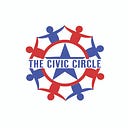A Civic Moment for Maryland
By Meredith Warden
This past Civic Learning Week (March 11–15) marked Maryland as a growing hot spot for civic education. The state Senate just approved a civic seals bill, a civics-friendly governor is prioritizing civics and service, and the Maryland Civic Education Coalition is leveraging new members and youth leadership.
Introduced in the Senate in February by state Senators Cheryl Kagan (D) and Justin Ready (R), the civic seals bill would establish Maryland Civic Excellence Program that would give school systems a way to formally recognize students and public schools that engage in exemplary civic readiness, service, and engagement.
The bill has been a leading priority of the Maryland Civic Education Coalition, an organization established in 2020 to create a collaborative network of Maryland groups dedicated to promoting civic education and creating service-learning opportunities for youth.
The legislation would give students “prestigious recognition for their outstanding civic involvement, thereby strengthening the civic fabric of our state,” according to a Coalition newsletter. The Maryland Civic Education Coalition marked Civic Learning week with a panel discussion on March 13 that gave educators new tools and perspectives on how to foster civic awareness and engagement.
Also last week, Maryland Gov. Wes Moore (D) issued a proclamation hailing civic education as “vital to sustaining and strengthening our constitutional democracy.” Moore established a state Department of Service and Civic Innovation as one of his first acts in office, and has launched a Public Service Year Program for Maryland high school graduates. Throughout his term he has emphasized the idea that “service will save us.”
Maryland was the first state in the U.S. to implement a service learning requirement for high school graduation. Advocates of the civic seals legislation say it would offer a valuable new tool to formally recognize civically active schools and students.
Students who meet certain criteria would receive a Seal of Civic Excellence, and a public school could be designated a Center of Civic Excellence. As Kagan noted at a committee hearing on the bill, “it’s about educating our young people about civic engagement, and that is what Governor Moore’s vision about our service year option created and launched last year.”
The bill passed the Maryland Senate unanimously on March 14, and now makes its way to the House of Delegates. The House Ways and Means Committee will hear the bill on Wednesday, March 27th.
Maryland’s civic seals legislation dovetails with a growing national movement to bolster civics education. National groups like iCivics and CivXNow are advocating for civics-related legislation on both the federal and state level, and various states are considering civics legislation.
Pending state bills include Missouri’s SB 1311 on Media Literacy and Critical Thinking, Wisconsin’s SB 837, which requires civics instruction for the elementary and high school grades, and Alaska’s SB 29, which creates statewide civics education curriculum and assessment. (For a full summary of pending state bills, visit CivXNow).
While Civic Learning Week, now in its second year, featured good news about public support for civic education, the state of civic learning — and democracy as a whole — also raised some red flags. Research released on March 12 at the Civic Learning Week National Forum, hosted by iCivics, suggests that public interest in civic learning remains high, and that students learn more when they can discuss civic and political issues openly.
At the same time, growing pressure on schools to limit race- and gender-related topics is having a chilling effect on teachers. Newly-released data from RAND noted that “about one-quarter of teachers nationally reported that limitations on race- or gender-related topics influenced their curriculum choices or instructional practices.”
All in all, this Civic Learning Week suggested that civic education in the U.S. is at an inflection point, with growing investment in civic learning butting up against increasing, deeply entrenched polarization. While experts at the recent forum stated that 80 percent of Americans believe that investing in civic learning is necessary to maintain a healthy democracy, they also stressed that developing high-quality civic education and engagement must be systematic and intentional, not piecemeal.
As Joseph Kahne, Professor and co-Chair of the Civic Engagement Research Group (CERG) at the University of California, Riverside, noted at the National Civic Forum, “if we want to bolster the foundations of our democracy, the problem isn’t young people’s apathy; collectively, it’s our own.”
Meredith Warden is the program development specialist at The Civic Circle, which belongs to both the Maryland Civic Education Coalition and the CivXNow Coalition. To sign up for The Civic Circle’s newsletter, The Civic Voice, please click HERE, or contact info@theciviccircle.org.
